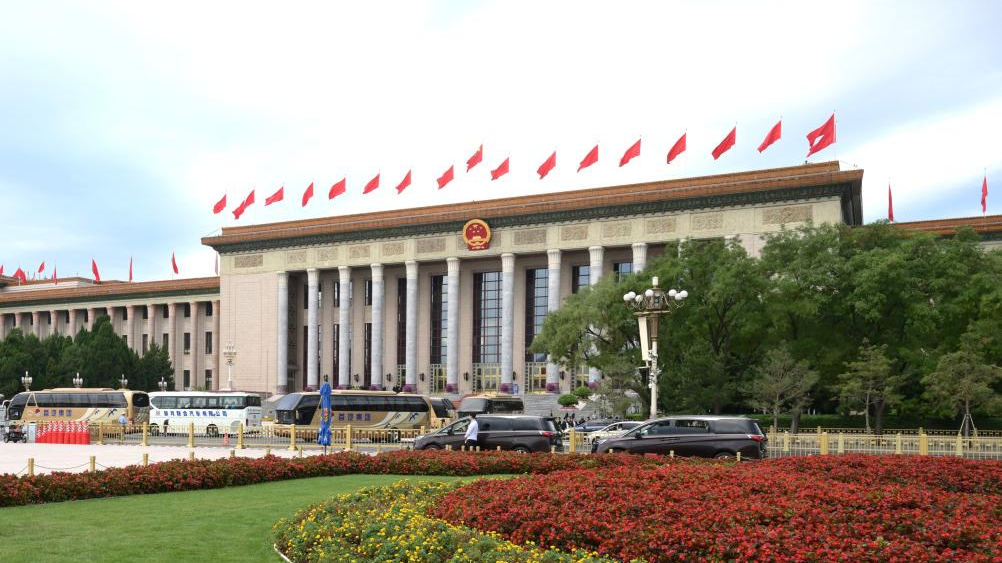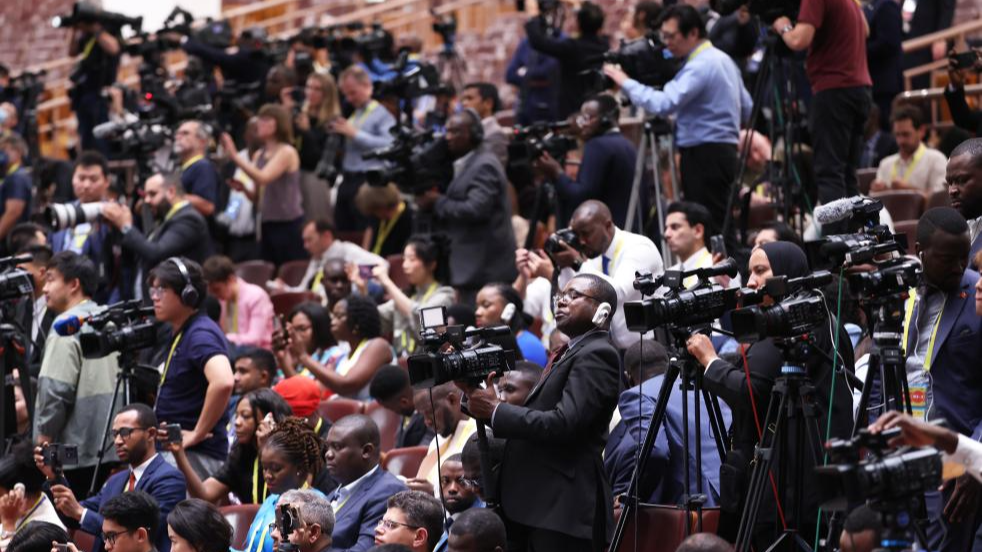
The Great Hall of the People in Beijing, China, September 5, 2024. [Photo/Xinhua]
By Adhere Cavince
The 2024 Forum on China-Africa Cooperation (FOCAC) Summit concluded with a resounding resolve among African and Chinese leaders to amplify synergy in their collective push for inclusive and sustainable development. In the 24 years since the forum was initiated, Africa's partnership with China has seen the most development compared to any other arrangement with a single country.
In China, the continent has found a dependable partner whose unique history, demography and stage of development in many ways mirror those of African countries. Ahead of the FOCAC Summit, a perception survey by the Johannesburg-based Ichikowitz Family Foundation that works in community engagement and entrepreneurship found that African youths consider China to be the most influential power in Africa, polling 82 percent, compared to the United States at 79 percent.
Like the previous FOCAC meetings, the just-concluded summit has set the stage for comprehensive political and socioeconomic engagement between China and Africa for the next three years. China has pledged 360 billion yuan (about $51 billion) in financial support to implement these actions.
From major infrastructure construction, green energy transition and agricultural modernization to industrial expansion, China has demonstrated its willingness to stand with Africa. Since 2009, China has been Africa's largest trade partner. By agreeing to import more African products, China has handed Africa diversification away from traditional markets, which means higher incomes for farmers and other producers.
Over the next three years, China will provide about 60,000 training opportunities to Africans, mainly to women and young people. The skills and technology transfer to young Africans is a key enabler in entrepreneurship – a pathway out of unemployment and poverty. Young Africans today prefer China for training because of the high-quality education, affordable cost of living, and experiential learning in similar home contexts. Such exchange programs also foster understanding, friendship and cultural amity among the people of China and Africa.
On the other hand, Africa is also offering value proposition to China. With abundant natural resources including renewables, Africa's partnership with China, which is the largest source of green energy technology in the world, can be a powerful force in climate mitigation and adaptation.
Africa is forging ahead with the implementation of its free trade area, which is the largest after the World Trade Organization by member states. Africa's market is youthful and dynamic, presenting opportunities for Chinese enterprises. Africa also offers Chinese firms an opportunity to internationalize and drive economic transformation for win-win outcomes.

Journalists cover the opening of the 2024 Forum on China-Africa Cooperation Summit in Beijing, China, September 5, 2024. [Photo/Xinhua]
Many of the partnership actions proposed by China can well be implemented under the purview of the Belt and Road Initiative (BRI). Today, all African countries with diplomatic ties with China have signed agreements on cooperation under the BRI framework. It is a mark of confidence in the initiative as an avenue to galvanize international consensus on economic development.
The BRI's full implementation will lead to a net good for Africa and common prosperity for humanity, as envisaged under the United Nations' Sustainable Development Goals (SDGs).
Africa and China stand at a pivotal point in history. The two must band together in search of a strong global voice and representation on multilateral platforms. FOCAC has lived up to its billing as one of the most effective mechanisms of South-South cooperation and a key driver of the attainment of the SDGs.
Adhere Cavince, a special commentator on current affairs for CGTN, is an international relations scholar with a focus on China-Africa cooperation.

 中文
中文



